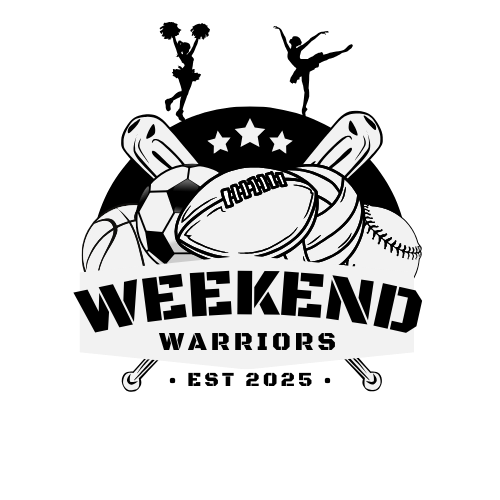Coaches Corner: Rethinking Talent Selection to Truly Identify Potential
Are We Choosing the Best or Just the Earliest Bloomers?
Imagine this: you’re at a youth sports tryout, stopwatch in hand, clipboard ready. Kids run, jump, shoot, and hustle, hoping to make the cut. But are we really selecting future stars? Or are we simply picking the kids who were born earlier or developed faster?
This is a question many coaches are starting to ask — and it might be one of the most important shifts we need in youth sports today.
The Problem: Choosing Talent Too Soon
In youth sports, we often confuse talent selection with talent identification.
What’s the difference? Think of it like this:
–
–
When we focus too much on selection, we unintentionally leave behind kids who are just as — or more — capable but haven’t developed as early as their peers.
Why This Matters More Than You Think
In many youth sports programs, there’s a race to form “elite” teams by the age of 9, 10, or 11. Sound familiar? The idea is that the best athletes deserve the best training. That may seem logical, but here’s where it gets tricky.
The kids we label as “the best” at a young age often have early physical advantages. Maybe they’re taller, faster, or just born a few months earlier than everyone else. This is known as the Relative Age Effect. And it’s giving some kids a head start — not because they’re more talented, but because they’re older or more physically mature.
Meanwhile, late bloomers are overlooked, cut from teams, and told (often indirectly) that they don’t belong. Some of them eventually quit — not because they lacked talent, but because they were never given the time or space to grow.
What Coaches Should Focus On Instead
So, how do we shift from selecting to identifying talent?
It starts with patience and curiosity. Great coaches don’t just ask, “Who is good now?” They also ask, “Who can we help become great later?”
Here are a few practical ways we can rethink the process:
- Train more, cut less. Instead of selecting a few to train more, give all kids extended chances to develop through quality practice and meaningful playing time.
- Evaluate the long-term potential. Look for signs like work ethic, enthusiasm, coachability, and love of the game.
- Watch how they respond to challenge. Sometimes the kids who struggle early show the most grit and improvement over time.
- Create flexible teams. Allow movement between performance levels so late-developers can catch up, instead of locking them out early.
Real-Life Example: Jamie and Alex
Jamie and Alex both tried out for a local soccer travel team. Jamie, tall for her age and quick on her feet, shined during tryouts. Alex, smaller and quieter, didn’t stand out as much. Coaches picked Jamie, saying she had “natural talent.”
Fast forward three years, and Alex, who kept training with a community club, began to surpass Jamie in skills, stamina, and game IQ. But by then, Jamie had already had years of solid coaching, while Alex didn’t get those same opportunities.
This isn’t just one story — it repeats itself all over the world. We’re selecting too early and missing too many late bloomers along the way.
Talent Development Should Be the Goal
At the end of the day, choosing kids based solely on current performance is like publishing a book after reading only the first chapter.
The better approach? Invest in kids for the long haul. Focus on consistent development, not early dominance.
This means:
- Providing equal access to quality coaching
- Encouraging multi-sport participation
- Measuring improvement, not just outcome
- Celebrating effort and resilience as much as natural ability
By switching our mindset from immediate success to long-term growth, we’ll set more athletes up for success — not just in sports, but in life.
What Can Parents and Coaches Do Differently?
Change doesn’t start from sports organizations — it starts with us, on the field and in the stands.
Here are a few questions to ask yourself:
– Am I praising my child or player only when they win — or also when they work hard?
– Do our team decisions prioritize potential and development or short-term wins?
– Are we creating an environment where every player feels valued?
As parents and coaches, we want to give kids the best shot at reaching their potential. That means keeping doors open, not closing them because a child didn’t shine at age 9.
Remember: Your job isn’t to predict the future — it’s to prepare kids for it.
Let’s Stop Picking Stars — and Start Growing Them
The real magic in sports comes when we nurture potential instead of chasing perfection. When we stop looking for the “best” kid and start developing all our kids, we’ll be amazed at how far they can go.
Because true talent takes time — and every child deserves that chance.
For all first time or rookie coaches, grab your Voluntold Toolkit here!
